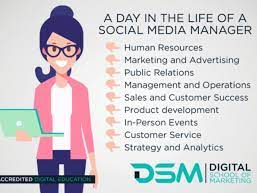Ai tools for SEO

Ai tools for SEO have become increasingly popular in the field of search engine optimization (SEO) due to their ability to analyze data, automate tasks, and provide actionable insights. Here are some AI-powered tools that can be useful for SEO:
RankBrain (Google)
- RankBrain (Google): RankBrain is an AI algorithm used by Google to help process and understand search queries better. Although not a tool per se, it has a significant impact on SEO and search engine rankings.
- Yoast SEO: Yoast SEO is a popular WordPress plugin that offers AI-driven optimization suggestions. It analyzes your content for readability and SEO factors, providing recommendations for improving keyword usage, meta tags, readability, and more.
- MarketMuse: MarketMuse uses AI to analyze your content and compare it with top-performing pages in search engine results. It provides insights on content gaps, related topics, and semantic keywords to help you optimize your content strategy.
- SEMrush: SEMrush is a comprehensive SEO tool that employs AI to provide insights and automate various SEO tasks. It offers keyword research, competitor analysis, backlink analysis, site audits, and more, allowing you to optimize your website effectively.
Moz Pro
- Moz Pro: Moz Pro offers a suite of SEO tools that leverage AI capabilities. It provides features like keyword research, site audits, rank tracking, and link analysis to improve your search engine rankings and overall SEO performance.
- BrightEdge: BrightEdge is an AI-powered SEO platform that provides insights and recommendations for optimizing your website’s visibility in search engines. It offers features like keyword research, content optimization, competitive analysis, and rank tracking.
- CognitiveSEO: CognitiveSEO utilizes AI algorithms to analyze backlink profiles, identify potentially harmful links, and provide recommendations for link building and penalty recovery. It also offers rank tracking, content optimization, and competitor analysis.
- Botify: Botify is an enterprise-level SEO platform that uses AI to crawl and analyze websites, identify technical issues, and provide recommendations for improving site structure, crawlability, and indexing. It also offers insights into keyword rankings and content optimization.
AI-powered tools
These AI-powered tools can assist you in various aspects of SEO, from keyword research and content optimization to technical analysis and competitor research. However, it’s important to note that while AI tools can provide valuable insights and recommendations, human judgment and expertise are still crucial in implementing and executing an effective SEO strategy.
AI tools for SEO can perform a variety of tasks and functions to enhance search engine optimization efforts. Here are some common functions that AI tools can perform in the context of SEO:
Keyword Research
- Keyword Research: AI tools can analyze search patterns, user behavior, and keyword trends to suggest relevant keywords and phrases to target. They can help identify high-volume, low-competition keywords to optimize content and improve rankings.
- Content Optimization: AI tools can analyze the content of webpages and suggest improvements for better search engine visibility. They can provide recommendations for keyword placement, content structure, readability, and relevance to improve overall content quality.
- On-Page SEO Analysis: AI tools can analyze various on-page elements such as meta tags, headings, images, and internal linking. They can provide recommendations to optimize these elements for better search engine rankings and user experience.
- Competitor Analysis: AI tools can analyze competitors’ websites and provide insights on their SEO strategies. They can identify top-performing keywords, backlink profiles, content strategies, and other factors that contribute to their success. This information can help shape your own SEO approach.
Technical SEO Audit
- Technical SEO Audit: AI tools can crawl websites to identify technical issues that may affect search engine visibility, such as broken links, duplicate content, slow page speed, or improper redirects. They can provide recommendations to fix these issues and improve website performance.
- Backlink Analysis: AI tools can analyze backlinks pointing to your website and evaluate their quality and relevance. They can identify toxic or spammy links that may harm your SEO efforts and provide insights for building high-quality backlinks.
- Rank Tracking: AI tools can monitor keyword rankings in search engine results pages (SERPs) and provide updates on the performance of your targeted keywords. They can track rankings over time, compare against competitors, and highlight any fluctuations or opportunities.
- Natural Language Processing (NLP): AI tools equipped with NLP capabilities can understand and interpret user queries and search intent more effectively. This can help in creating content that aligns with user needs and optimizing for voice search.
- Reporting and Analytics: AI tools can generate reports and analytics that consolidate data from various sources, such as keyword rankings, traffic metrics, backlink profiles, and user engagement. These insights can help track progress, measure the effectiveness of SEO efforts, and inform future strategies.
It’s worth noting that the capabilities and functionalities of AI tools may vary. Some tools focus on specific areas, while others offer a broader range of features. It’s important to select the tools that align with your specific SEO goals and requirements.




